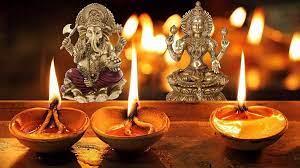The laughing Buddha, a beloved symbol of happiness and good luck, has captivated hearts worldwide. His jovial demeanor and plump figure have inspired countless works of art, literature, and film. In recent years, the Laughing Buddha has made a significant impact on the cinematic world, appearing in various movies that celebrate his spirit of joy, prosperity, and good fortune. In this blog post, we will embark on a cinematic journey, exploring the portrayal of the laughing Buddha in movies and the messages they convey laughing buddha movie.
The Symbolism of the Laughing Buddha
Before delving into the world of film, it’s essential to understand the symbolism associated with the Laughing Buddha. Often referred to as Budai, he is believed to be a Chinese monk who lived during the 10th century. His cheerful countenance and ample belly are said to represent happiness, abundance, and good fortune. The laughing Buddha is often depicted holding a bag of gold or a child, symbolizing wealth and protection.
The Laughing Buddha in Popular Culture
Laughing Buddha’s popularity has extended beyond religious and cultural circles. He has become a beloved figure in popular culture, appearing in various forms of media, including movies. Filmmakers have often incorporated the Laughing Buddha into their stories to convey themes of joy, prosperity, and the power of positive thinking.
The Laughing Buddha in Chinese Cinema
Chinese cinema has a long history of incorporating mythological and historical figures into its films. The Laughing Buddha, with his universal appeal, has been a frequent subject in Chinese movies. These films often portray the Laughing Buddha as a wise and benevolent figure who dispenses wisdom and good fortune.
The Laughing Buddha in Hong Kong Cinema
Hong Kong cinema, known for its vibrant and eclectic mix of genres, has also embraced the Laughing Buddha. Hong Kong filmmakers have often used the Laughing Buddha as a comedic device or as a symbol of good luck in their movies.
The Laughing Buddha in Western Cinema
While the Laughing Buddha is primarily associated with Eastern cultures, he has also made appearances in Western cinema. Western filmmakers have often used the Laughing Buddha to add a touch of exoticism or to symbolize good fortune and prosperity.
The Laughing Buddha in Animated Films
Animated films have provided a unique platform for the Laughing Buddha to captivate audiences of all ages. Animated movies have often portrayed the Laughing Buddha as a playful and endearing character who teaches valuable lessons about happiness and positive thinking.
The Laughing Buddha in Independent Films
Independent filmmakers have also embraced the Laughing Buddha, using his image to explore themes of spirituality, philosophy, and cultural identity. Independent films often offer a more nuanced and artistic portrayal of the Laughing Buddha, delving deeper into his symbolism and mythology.
The Impact of the Laughing Buddha on Cinema
The Laughing Buddha’s presence in cinema has had a profound impact on the film industry. His image has been used to promote positive messages, inspire audiences, and evoke feelings of joy and happiness. Movies featuring the Laughing Buddha have often been commercially successful, demonstrating the enduring appeal of this beloved figure laughing buddha movie.
Conclusion
The Laughing Buddha, with his infectious laughter and benevolent spirit, continues to inspire filmmakers and audiences alike. His cinematic portrayal has enriched the world of film, offering a unique blend of humor, spirituality, and cultural significance. As we continue to explore the vast landscape of cinema, the Laughing Buddha will undoubtedly remain a cherished symbol of joy, prosperity, and good fortune laughing buddha movie.
FAQs
- What does the belly of the Laughing Buddha represent? The laughing Buddha’s ample belly is often associated with wealth, abundance, and good fortune.
- Why is the Laughing Buddha always smiling? The Laughing Buddha’s constant smile is a symbol of joy, happiness, and contentment. It is believed that his smile can spread positivity and dispel negative energy.
- Are there any specific movies that prominently feature the Laughing Buddha? While there are numerous movies that reference or include the Laughing Buddha, specific films that focus solely on his story are less common. However, many Chinese and Hong Kong films incorporate the Laughing Buddha as a symbol or character.
- What role does the Laughing Buddha have in culture? The Laughing Buddha is a revered figure in Chinese culture, often associated with Buddhism and Taoism. He is believed to bring good luck, prosperity, and happiness to those who honor him.
How can I incorporate the teachings of the Laughing Buddha into my life? To embrace the teachings of the Laughing Buddha, focus on cultivating a positive mindset, practicing gratitude, and spreading joy to others. By living a life filled with kindness and compassion, you can embody the spirit of the Laughing Buddha.




